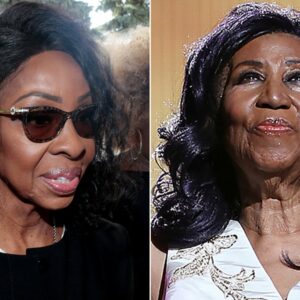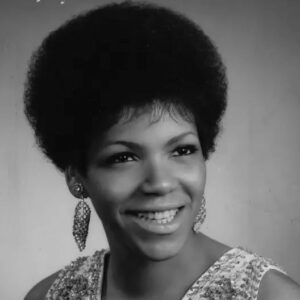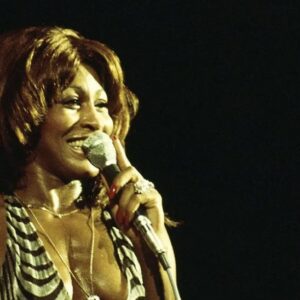Queen Latifah has become one of the most influential and dynamic figures in entertainment, paving the way as a multi-talented artist, advocate, and role model for women across generations. With a career that has seamlessly woven together music, television, film, and philanthropy, Latifah’s impact extends far beyond her craft. Her journey from hip-hop’s early stages to Hollywood’s brightest lights represents not only her versatility but also her resolve to carve out spaces for herself and others in an industry historically slow to welcome women of color. In her recent Vanity Fair interview, Queen Latifah sheds light on her experiences, her challenges, and her commitment to empowering women and breaking down stereotypes.
Breaking Barriers: From Rap Royalty to Hollywood Star
Queen Latifah’s journey began in Newark, New Jersey, where music became her voice in a world that often silenced young women of color. As a teenager, she entered the hip-hop scene, a genre traditionally dominated by male voices, with a message of strength and empowerment. Her debut album, All Hail the Queen, was a statement, merging conscious lyrics with hard-hitting beats that demanded attention. Latifah’s early songs like “Ladies First” became anthems of female empowerment and resilience, challenging the idea that hip-hop was only a man’s game.
Transitioning from music to the screen was no small feat, but Latifah’s ability to captivate and inspire transcended genres. Her role in Living Single as Khadijah James, a self-sufficient and independent woman of color, reshaped the landscape of sitcoms in the ’90s. She portrayed characters that defied stereotypes, resonating with audiences who rarely saw themselves authentically represented in mainstream media. Queen Latifah’s talent, along with her desire to represent the underrepresented, turned her into a true pioneer for women of color in entertainment.
Insights from the Vanity Fair Interview: Empowerment and Self-Identity
In her interview with Vanity Fair, Queen Latifah spoke candidly about the state of the entertainment industry, female empowerment, and self-identity. Reflecting on the changes she’s witnessed, she acknowledged the progress made but emphasized that there’s still much work to be done. “There are more women in decision-making roles now,” she said, “but there are still barriers that women, particularly women of color, have to break through every day.” She talked about the importance of self-identity in a field that often tries to mold individuals to fit preconceived images, sharing that staying true to herself has been her greatest source of strength.
Latifah’s perspective on female empowerment is rooted in her own experiences of fighting for roles and respect in a male-dominated industry. She believes that empowerment begins with knowing oneself and not conforming to someone else’s idea of what a woman in entertainment should be. For Latifah, the concept of empowerment is not only about advancing oneself but also about creating opportunities for others. “When one door opens,” she stated, “it’s my responsibility to make sure more women have a chance to walk through it.”
Landmark Projects and Roles That Shaped Her Career
Queen Latifah’s filmography is a testament to her adaptability and fearless approach to new challenges. Her role in Chicago, where she played Matron “Mama” Morton, showcased her range as both an actress and singer, earning her an Academy Award nomination. In the world of film, Latifah has a knack for selecting roles that challenge norms and depict strong, multifaceted women. Her character in The Secret Life of Bees highlighted her ability to bring depth to roles that resonate emotionally with audiences. This role in particular illustrated her capacity to tell stories that reflect the complex lives of women, especially women of color.
Her work in The Equalizer TV reboot is one of her latest ventures, where she plays Robyn McCall, a character that allows her to embody strength, compassion, and justice. For Latifah, The Equalizer represents more than just a role; it’s a platform to discuss real-world issues and bring visibility to underrepresented voices. She sees her character as a symbol of resilience and a reminder that strength is not determined by one’s gender or race but by one’s commitment to making a difference. And while she remains tight-lipped about upcoming projects, she hints that her future work will continue to focus on stories that uplift and inspire.
A Commitment to Self-Care and Staying Grounded
In an industry that’s fast-paced and often unforgiving, Queen Latifah emphasizes the importance of mental health and self-care. Over the years, she has learned to navigate fame while staying connected to her roots and her sense of self. In the Vanity Fair interview, she spoke about the challenges of mental health in the entertainment industry, explaining that staying grounded requires intention and regular reflection. “It’s easy to get lost in this business,” she admitted. “You have to take time to recharge, to spend time with people who genuinely care about you, and to do things that bring you joy.”
Latifah encourages others to make mental well-being a priority, regardless of their profession. Her self-care routine involves spending time with family and close friends, engaging in outdoor activities, and keeping her faith at the center of her life. She believes that mental strength is built through small daily acts of self-kindness and mindfulness, offering this advice to those pursuing demanding careers: “Take care of yourself first, because that’s the foundation of everything. You can’t pour from an empty cup.”
Using Her Platform for Good: Social Causes and Philanthropy
Queen Latifah has never shied away from using her platform to advocate for social justice and philanthropy. Whether it’s speaking out about racial injustice, supporting LGBTQ+ rights, or working to increase awareness around women’s health issues, she has consistently championed causes close to her heart. Through her initiatives, such as the Queen Collective, she has actively worked to amplify the voices of young female filmmakers, providing them with the resources and opportunities they need to tell their own stories.
Latifah’s philanthropic work extends beyond the spotlight. She has been deeply involved in campaigns supporting inner-city youth, educational initiatives, and health awareness programs. For Latifah, social responsibility is inseparable from her role as a public figure. “The stage is a privilege,” she said. “With it comes a responsibility to use your voice for those who don’t have one.”
Queen Latifah’s Legacy: Inspiring Future Generations
Queen Latifah’s legacy is already firmly cemented, yet she continues to push boundaries and inspire new generations. Her contributions to music, film, and television have created new pathways for artists who once felt they had no place in the industry. By proving that one’s identity and artistic journey can coexist without compromise, she has helped to expand the definition of success for women in entertainment. Young artists today look to her as an example of resilience, creativity, and integrity.
Her influence extends beyond entertainment; she is a cultural icon whose impact on future generations is evident in the countless young women she’s inspired to follow their dreams unapologetically. Queen Latifah’s career is a blueprint for defying limitations, and her life story is a testament to the power of self-belief and authenticity. Her enduring legacy will no doubt inspire women of color, artists, and dreamers for years to come, reminding them that they too have the power to redefine their narratives and change the world.
Conclusion: The Queen’s Enduring Reign
As Queen Latifah’s journey continues, her story stands as a powerful reminder of the impact one can make by staying true to oneself. Her unwavering dedication to her craft, her advocacy for others, and her commitment to self-empowerment make her a role model for all. Queen Latifah has not only paved the way for countless women but has also left an indelible mark on entertainment and society. Her reign as a queen is more than just a title; it’s a legacy—one that embodies resilience, creativity, and boundless possibility.





